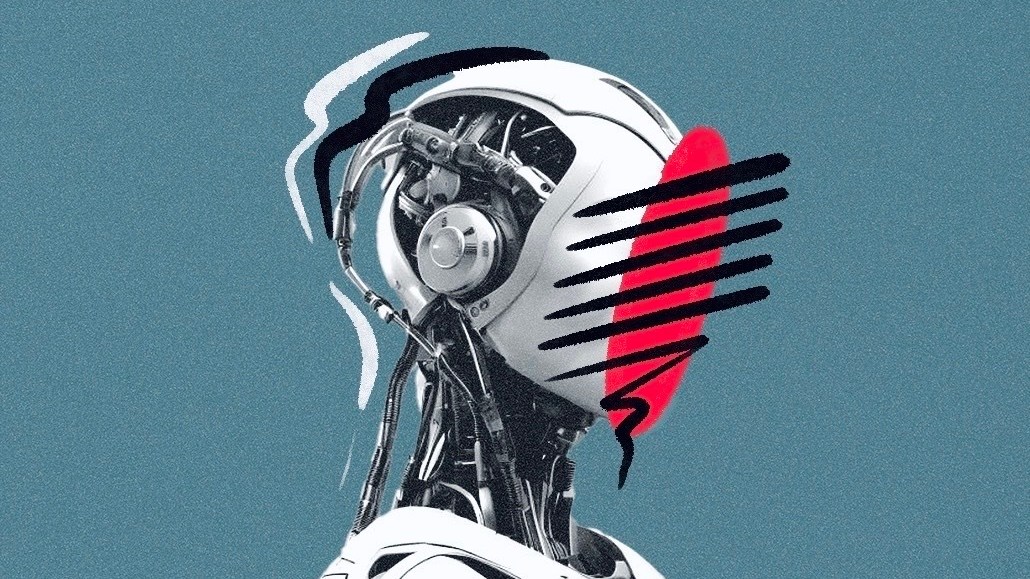By Hailey Mensik • December 19, 2024 •

Ivy Liu
The story was first published by Digiday sibling WorkLife
Workforces may be having an issue with AI overkill.
About half of business leaders report declining company-wide enthusiasm for AI integration and adoption, according to a recent EY pulse survey, including responses from 500 senior business executives.
The findings speak to general exhaustion with constant change in the workplace following the pandemic, with the return to offices, hybrid work and now the integration of new and potentially transformative technology. And that’s extending to all levels of organizations. In EY’s survey, over half of company leaders said they feel they are failing in their role amid AI’s rapid growth.
“The primary driver of AI fatigue is the intense focus on adoption over the past year, coupled with uncertainty around how the technology will impact employees and the rapid pace of its implementation,” said Dan Diasio, EY global artificial intelligence consulting leader.
“As companies push forward with AI integration, many are facing mounting challenges related to employee disengagement,” Diasio said.
One problem is that many workers are finding the tools don’t make them more productive. Almost 80% of workers who use generative AI in their jobs said it has added to their workload and is hampering their productivity, as they spend more time reviewing or moderating AI-generated content, an Upwork survey of over 2,500 full-time workers, freelancers and executives found.
In that same survey, 96% of executives said they expect AI to boost productivity, while about 40% of staff said they don’t know how that will ever happen.
In some cases, AI tools have been initially rolled out then scaled back following concerns from legal teams, said Emily Rose McRae, senior director analyst at Gartner. “You have tools that might have been useful that people are now being told not to use, which then decreases enthusiasm for the entire category,” she said.
Another major problem is a lack of training on using new AI tools properly. From 2023 to 2024, the number of employees who said they feel very prepared to work with AI dropped by six percentage points, according to a report from Gallup. Some 40% of employees said they are struggling to understand how to integrate AI into their work, and 75% said they lack confidence in how to utilize AI, another report, from Wiley, found.
“As AI is still a new tool for many, it’s essential for companies to prioritize communication, transparency, and education to alleviate these concerns. By focusing on human-centered design, leaders can help employees better understand their role and potential benefits, fostering a more engaged workforce,” Diasio said.
To read the full article over on WorkLife click here
https://digiday.com/?p=563896















